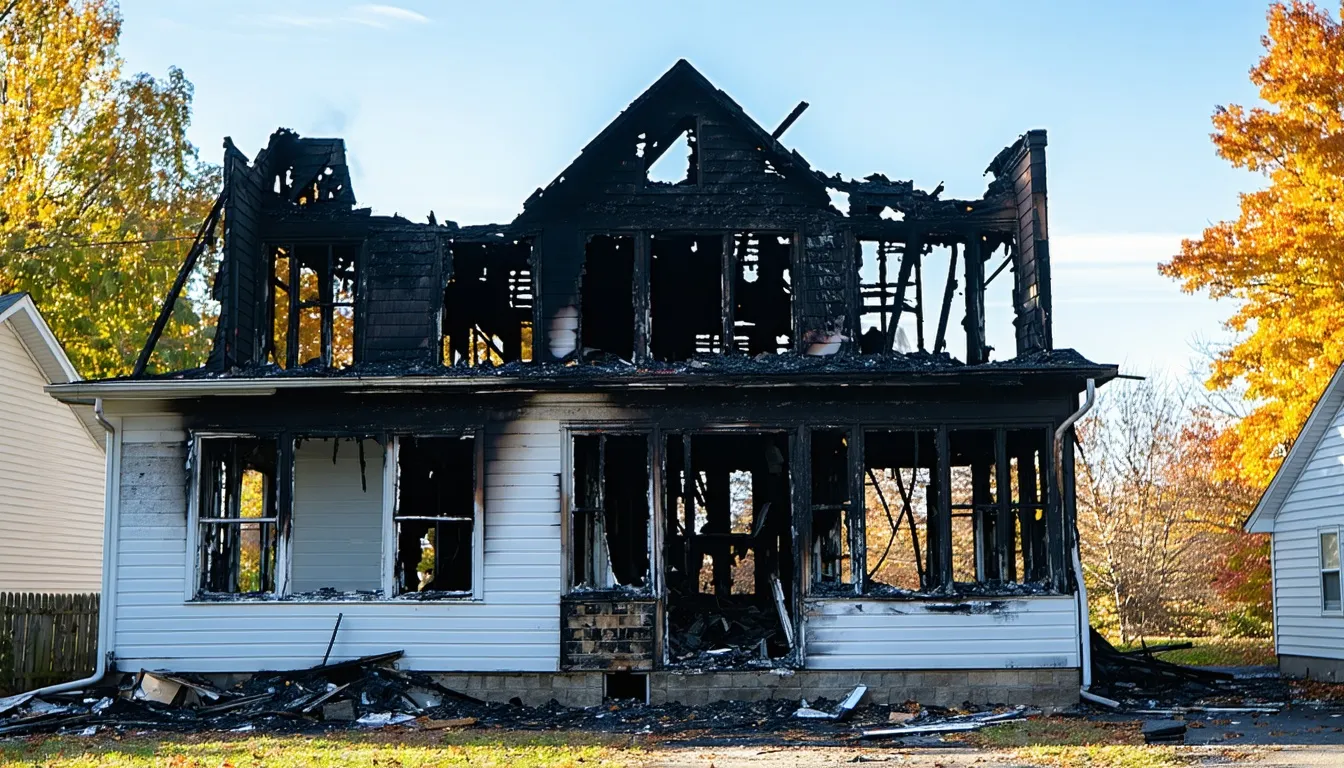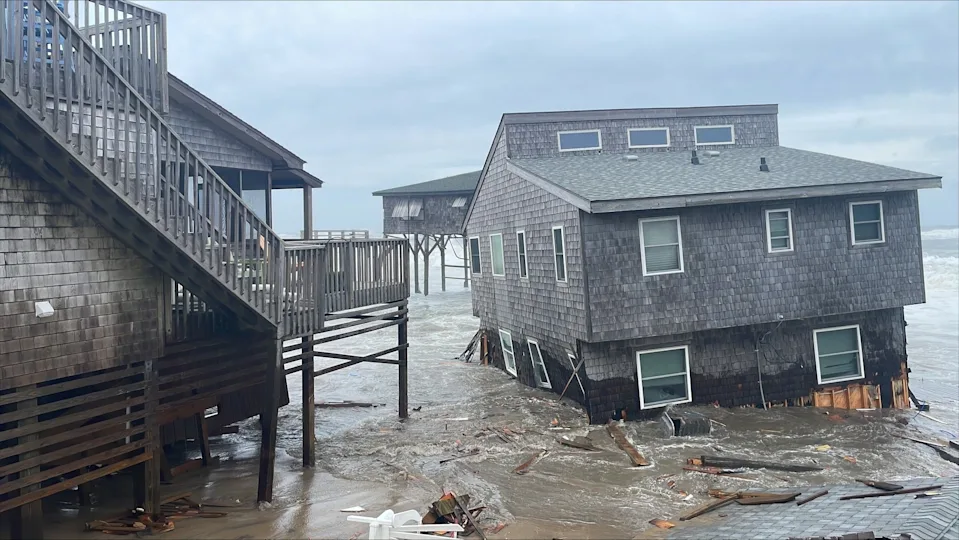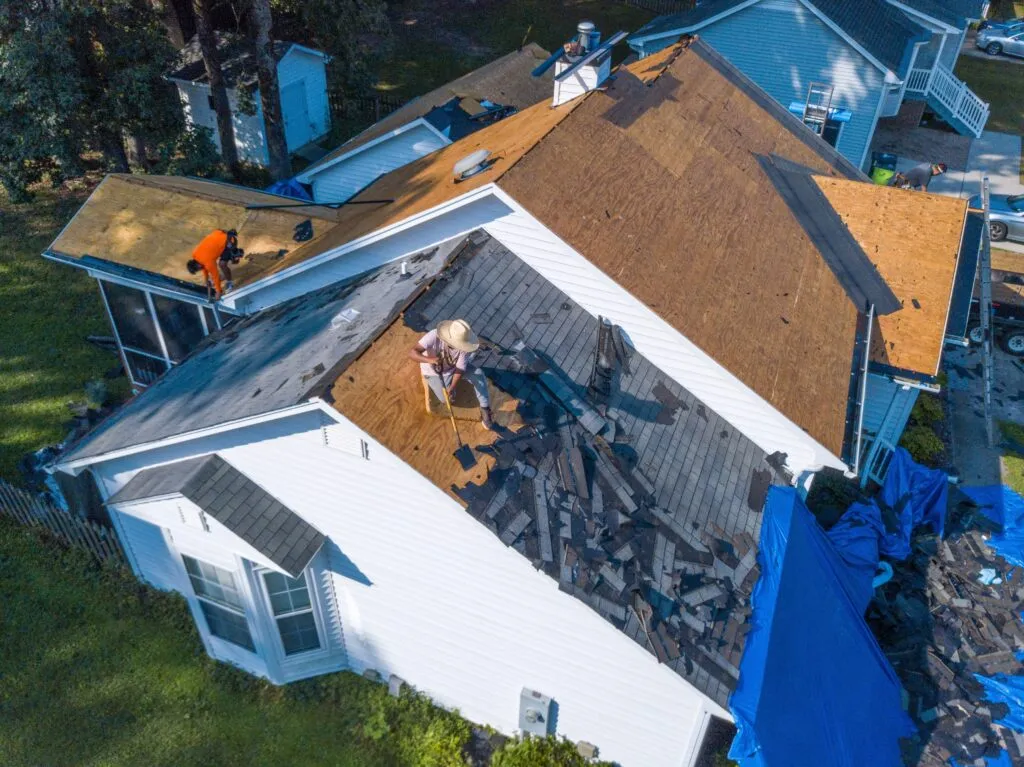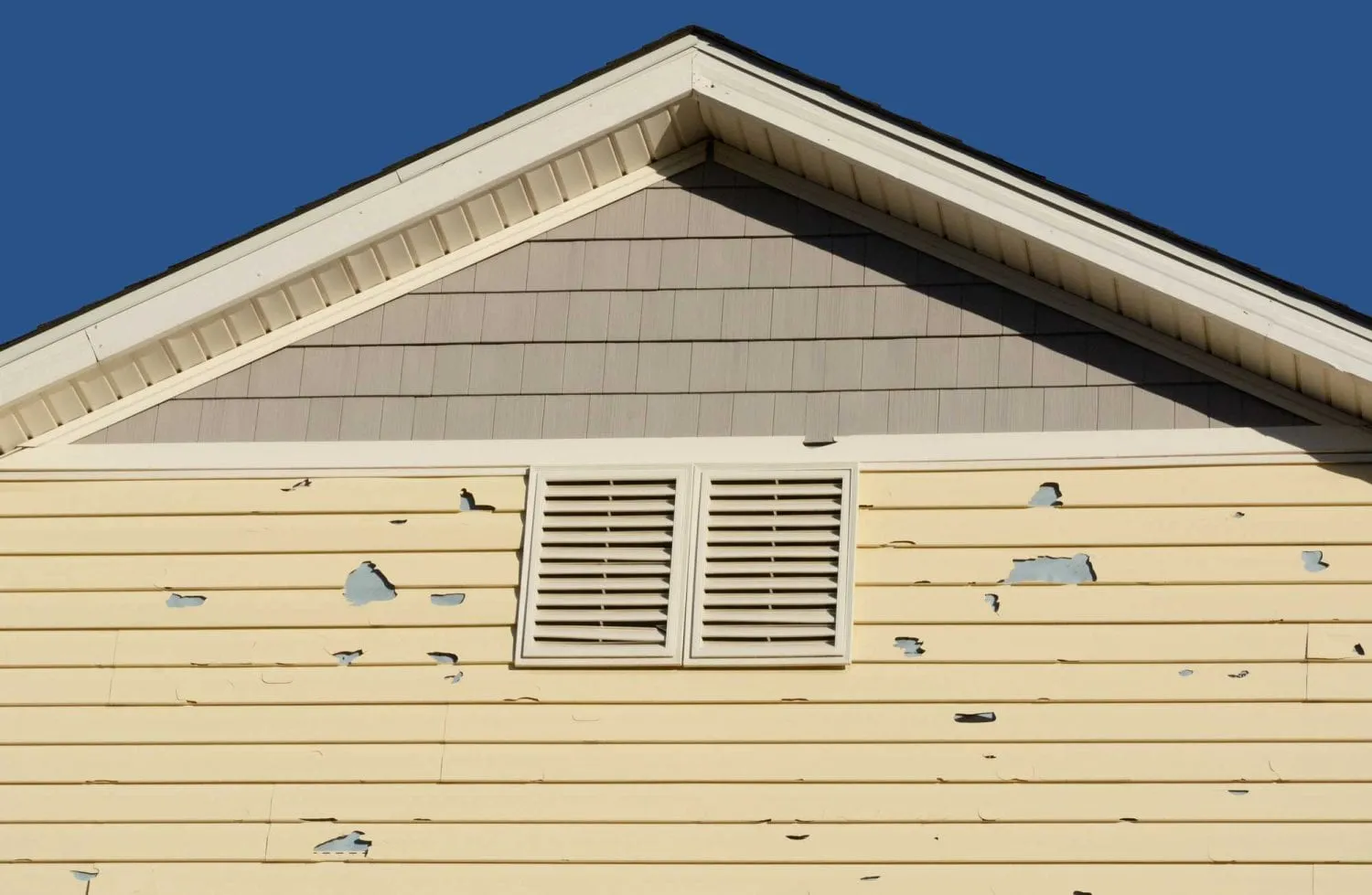Newark Insurance Claim Help: Protecting Your Property After Serious Damage
.svg)

Why Newark Insurance Claim Help Is So Important After a Loss
When an intense thunderstorm sends wind-driven rain against row homes in the Ironbound, when a burst pipe floods the ground floor of a three-family near University Heights, when a kitchen fire fills a North Ward duplex with smoke, or when vandalism damages a small business on Broad Street, life in Newark can change in a single afternoon.
In those first chaotic hours, you are not thinking about policy conditions or filing deadlines. You are trying to keep everyone safe, call the fire department or a plumber, move furniture and electronics away from water, board up broken doors or windows, and figure out where your family—or your tenants—are going to sleep tonight. You are dealing with sirens, wet drywall, the smell of smoke, and the stress of disrupted routines.
Only after the immediate emergency settles do you face the long, expensive reality: repairing or rebuilding in Newark, New Jersey, is not cheap or simple. Older row houses, three-families, mixed-use buildings with shops below and apartments above, and small commercial spaces all have complex systems: layered roof assemblies, aging electrical and plumbing, masonry walls, and shared mechanical rooms. Once those systems are damaged, the repair process quickly becomes more than just painting over stains or replacing a single window.
At that point, everything turns on your insurance claim. Your homeowners, landlord, condo, or commercial policy is supposed to step in and absorb much of the financial shock. But whether that actually happens—and how completely—depends less on what feels “fair” and more on how the claim is investigated, documented, and negotiated. That is where Newark insurance claim help makes the difference between a partial patch and a full, code-compliant restoration.
Many policyholders assume the process will be straightforward. You have paid premiums for years, a covered event clearly occurred, and damage is visible to anyone who walks through the property. You open a claim, cooperate with the company’s adjuster, and a check arrives that covers what it truly costs to repair or rebuild in Newark.
In reality, a property claim is a legal and financial process controlled by the insurer, defined by a contract they drafted, and navigated by professionals who do this every day. You are facing one major claim. They manage thousands. Newark insurance claim help exists to level that playing field, so you are not trying to figure it all out while living in a damaged building and juggling contractors, tenants, and bills.
How Newark Insurance Claims Actually Work Behind the Scenes
From the outside, an insurance claim looks like a simple three-step story: report the loss, let the company inspect, and collect payment. Newark insurance claim help starts by showing you what really happens behind the scenes, so you can make smart decisions at each step instead of just hoping the system treats you fairly.
Everything begins with the first notice of loss. You call your agent, dial the company’s claims number, or file online. The representative asks when the damage happened, what caused it, what areas are affected, whether everyone is safe, and what steps you have taken so far. You might be answering with water still on the floor, smoke smell still in the air, or a contractor still boarding up a storefront.
That conversation feels like an informal report. It is not. Your statements usually end up in the permanent claim file. Months later, if there is a dispute, the insurer may quote your words back to you.
If you say, “This roof has been leaking for years,” when you really mean, “The roof is older, but water came in only after last night’s storm,” the company may argue that most of the damage is wear and tear, not a sudden storm event. If you say, “The basement always gets water,” while describing a sudden backup or burst pipe, you may unintentionally help them frame the loss as excluded groundwater instead of a covered incident.
One of the simplest forms of Newark insurance claim help is this: stick to facts you know. Say when you first noticed the problem, what the weather or conditions were, what you saw, heard, or smelled, and what you did immediately afterward. Leave technical diagnoses—exact failure points, long-term structural issues—to contractors and experts who can support those conclusions later.
Once the claim is opened, the insurer assigns an adjuster and schedules an inspection. After a big storm, that adjuster may be handling many Newark insurance claims across multiple neighborhoods in the city and surrounding towns. Time is short; inspections can be fast.
During the visit, the adjuster walks through your property, takes photos and measurements, and asks questions about how the loss unfolded. They may focus on the most obvious damage: a collapsed ceiling from a leak, charred cabinets from a fire, standing water on a floor, broken glass and pried-open doors from vandalism. Attics, crawlspaces, hidden chases, and the full extent of smoke or water travel may not receive detailed attention.
Back at their desk, the adjuster enters what they saw into estimating software. That software is standard in the industry, but it only prices what the adjuster tells it to. If they define a narrow scope—limited demolition, short drying time, patching instead of full replacement—and choose conservative labor and material prices for Newark, the resulting estimate will be modest.
That estimate becomes the company’s opening position. You receive a statement of loss and an initial payment, usually reduced by your deductible and, for replacement-cost policies, by depreciation. You might be told you can recover some depreciation later, after repairs are complete and you submit proof of what you actually spent.
At this point, many Newark property owners mistakenly assume the claim is “done.” In reality, the real test comes when you contact contractors. Roofers, restoration companies, electricians, plumbers, and general contractors look at the same damage and create bids based on what it actually takes to do the job properly in Newark:
Removing wet, burned, or structurally compromised materials—not just cosmetic patches.
Drying and dehumidifying long enough to prevent mold and long-term deterioration.
Replacing entire sections of roofing, siding, flooring, or ceilings where damage is widespread or matching is impossible.
Charging labor rates that match New Jersey’s realities and using materials that are comparable to what you had before.
Suddenly, it becomes obvious that the initial estimate may not be enough. Newark insurance claim help takes you from this uncomfortable realization to a structured response—reframing the claim around real-world repair scopes and the actual promise of your policy, not just the insurer’s first impression.
Common Newark Property Losses and Where Claims Go Wrong
Newark’s mix of older buildings, dense neighborhoods, multi-family housing, and small businesses produces recurring types of property damage. Newark insurance claim help is especially important in these scenarios, because they are where policyholders most often lose money without realizing it.
Water damage from plumbing, heating, and appliances is one of the biggest issues. Many Newark homes and rentals have aging plumbing lines, older boilers and radiators, or complex piping that runs through multiple units. A burst pipe in a third-floor bathroom can send water through ceilings and walls into lower apartments, hallways, and stairwells. A failed supply line to a washing machine or dishwasher can soak cabinets, flooring, and subfloors before it is discovered.
Insurer estimates sometimes treat these events as localized “clean and patch” jobs, replacing only the most visibly damaged materials. But water rarely confines itself to the square footage that happens to collapse. It runs along framing, saturates insulation, and spreads under flooring and into adjacent spaces. Without strong Newark insurance claim help to document that full path, large parts of the loss can remain unaddressed.
Fire and smoke losses are another major category. In Newark’s multi-family buildings and mixed-use structures, a kitchen fire in one unit or a small electrical fire in a basement can send smoke and soot throughout the building: into common hallways, neighboring apartments, attics, and ductwork.
Insurance estimates may fund full rebuild of the burned room while offering limited budgets for cleaning and deodorizing the rest of the property. If you accept that without question, you may find yourself living with lingering smoke odor, discolored surfaces, and contaminated insulation long after the claim is “closed.” Effective Newark insurance claim help makes sure smoke is treated as a building-wide contamination issue, not just a small cosmetic problem.
Storm damage, especially wind-driven rain and roof leaks, is another problem common in Newark. Older roofs, worn flashing, and aging masonry are particularly vulnerable. A strong storm can lift shingles, push rain under roofing, or drive water through compromised window and door assemblies. Inside, the visible result is often stains on ceilings and walls or isolated collapses.
Insurance companies may attempt to attribute part of this damage to age, poor maintenance, or long-term deterioration, offering limited funds for interior repairs while denying or minimizing roof and exterior work. Newark insurance claim help focuses on showing how a specific storm event triggered or worsened damage, supported by weather data, photos, and contractor input, so that storm-created problems are not dismissed as “old issues.”
Vandalism and theft claims are also frequent in Newark, especially for small businesses, vacant units, and properties under renovation. Broken doors and windows, damaged locks, stolen copper piping or wiring, and deliberate interior damage can leave properties exposed to further loss and expensive repairs.
If not carefully documented, these claims can be underpaid or partially denied on the grounds of “security issues” or questions about which items were truly stolen or damaged at the time of the incident. Newark insurance claim help involves thorough photo documentation, police reports, contractor assessments, and careful inventories so that legitimate losses are hard to dismiss.
Across all of these scenarios, the pattern is the same: the most expensive parts of a loss are often the easiest to underestimate—hidden moisture, smoke spread, structural stress, code-related issues, and business or rental income loss. Newark insurance claim help is about shining a light on these areas and insisting they be fully factored into the claim, not quietly ignored.
How Newark Insurance Claim Help Strengthens Your Case
Newark insurance claim help is not only about arguing for a higher number; it is about building a clear, evidence-based case that the insurer must respond to seriously. From the moment damage occurs, there are specific actions you can take that make this process easier and more effective.
First, protect safety and prevent further damage. If a structure feels unsafe, heavily smoked, or at risk of collapse, get people out and wait for professionals. Once everyone is safe, take reasonable steps to limit additional damage: shut off water to broken lines, arrange emergency board-up or tarping, move undamaged belongings away from affected areas, and call reputable mitigation companies for water extraction, drying, or initial fire cleanup.
Second, document early and often. Before large-scale cleanup or demolition begins, walk through the property with your phone and take detailed photos and short videos. Capture:
Exterior views from multiple angles, showing roofs, walls, windows, doors, and any storm, impact, or vandalism damage.
Interior views of every affected room in each unit or floor.
Close-ups of ceilings, walls, floors, cabinets, fixtures, and contents that show water lines, soot, charring, staining, warping, or other damage.
As contractors open walls, ceilings, or floors, continue documenting. Hidden damage—soaked insulation, mold, charred framing, corroded pipes—often becomes the most convincing part of any supplemental claim.
Third, be present for the insurer’s inspection whenever possible. Walk through the property with the adjuster. Calmly point out all areas you believe are affected, including upper units, basements, shared spaces, and back-of-house areas that might otherwise be overlooked. Provide copies of mitigation invoices and any contractor proposals you have received. Answer questions honestly, but stay focused on what you personally observed and did, rather than offering speculation about long-term conditions or structural issues.
Fourth, scrutinize the company’s estimate when it arrives. Look at which rooms and systems are included, what is being demolished versus simply cleaned or painted, how much drying or deodorizing is planned, and whether material and labor allowances seem realistic for Newark. Then compare that estimate with bids from contractors you trust. The gaps you see—more demolition, more drying, broader replacement, higher costs, code-required upgrades—are exactly where Newark insurance claim help will concentrate.
Professional claim support, whether from an experienced public adjuster or another advocate, takes these raw elements—photos, invoices, contractor bids, and policy language—and turns them into a structured argument. Instead of a vague disagreement, you have a well-organized claim file that shows:
- Exactly what happened and when
- How far the damage extends, including hidden areas
- What it costs to repair or rebuild properly using Newark labor and materials
- How your policy, read fairly, supports those repairs
From there, your advocate manages the back-and-forth with the insurer: submitting supplements, responding to objections with targeted documentation, attending joint inspections, and watching deadlines for proofs of loss, appraisal, or legal action. Newark insurance claim help is about making sure your claim is treated as a serious, evidence-based matter—not a rushed transaction tied to the company’s initial estimate.
Conclusion
In Newark, a serious property loss is never just a smudge of soot or a damp patch on a ceiling. A storm that drives rain into aging roofs and walls, a burst pipe that floods multiple units, a fire that sends smoke through stairwells and corridors, or a vandalism event that shatters storefronts and guts interior systems can disrupt entire households, unsettle tenants, interrupt businesses, and threaten years of investment.
Your insurance policy exists precisely to stand between you and financial disaster, but the system that turns that policy into actual checks is designed and controlled by your insurer. The first adjuster you meet works for that company, not for you. If you treat their quick inspection and first estimate as the full story, you are effectively letting the carrier’s internal priorities decide how completely your Newark property will be restored.
Newark insurance claim help is how you change that equation. By acting quickly to mitigate further damage, carefully documenting what has happened, comparing insurer estimates with real bids from Newark-area contractors, and bringing in professional advocacy when the loss is substantial or complex, you transform a confusing, one-sided ordeal into an organized, evidence-driven claim.
Instead of hoping the process will “work out,” you present the full reality of your loss and what it genuinely costs to make your home, rental, or business whole again under Newark’s conditions and building codes. In a city where the next storm, leak, fire, or act of vandalism can strike without warning, that kind of informed, deliberate approach is often the difference between a thin patch job and a complete, confident return to normal life. With the right Newark insurance claim help on your side, you are not just a claim number—you are an informed policyholder actively protecting your property, your income, and your future in Newark.








.svg)